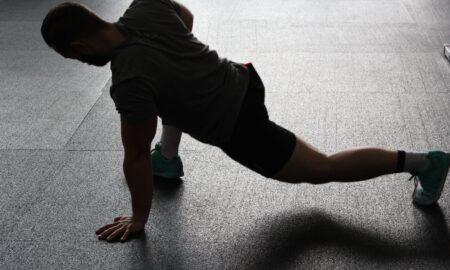Most bodybuilders are familiar with the extensive findings concerning the anabolic effects of downing a protein-and-carb combination prior to, just after or both before and after engaging in intense weight training. That combination of nutrients provides the raw material needed for muscle protein synthesis as well as glycogen repletion after training. Having a protein-and-carb drink prior to training increases muscle uptake of amino acids during the workout, which gives you both anticatabolic effects and maximum postexercise recovery. Some recent studies have found additional benefits.
Amino acids increase muscle protein synthesis because they encourage the activity of certain anabolic signaling factors after exercise. Insulin also plays a role in the process, and amino acids and carbs are known triggers of insulin release. While most bodybuilders eat a meal prior to training, a recent study examined what happens to muscle-protein-synthesis activators when you fast prior to training but have a protein-and-carb drink afterward. The drink contained carbs, predigested protein and the branched-chain amino acid leucine, which is known to play a pivotal role in activating muscle protein synthesis. Prior to one training session, the subjects ate a high-carb breakfast, but they did not do so before the next one.
The high-carb breakfast before training blunted the release of myogenic factors, as the protein-synthesizing factors are called. In contrast, not eating before training but having the protein-and-carb drink afterward maximized the myogenic activity. In practical terms, fasting prior to training boosted the anabolic effects offered by a protein-and-carb drink taken after training. While it may be uncomfortable to train after not eating, the primary energy for the workout will come from muscle glycogen, which depends on what you’ve eaten in the 24 hours prior to the workout. The increased muscle protein synthesis you get from fasting-plus-postworkout drink has potent anabolic effects that exceed what occurs if you eat beforehand.
Another study found that younger people can train more effectively in the heat than older people because blood-plasma-volume increase is blunted in older people. Both young and older subjects showed a greatly increased capacity to exercise under hot conditions if they had a protein-and-carb drink immediately before exercise. The combination apparently makes up for the age-related deficit in the plasma volume response to exercise. Protein-and-carb drinks enhance venous blood return to the heart during exercise, which better fills the heart with blood. What follows then is a stimulation of heat-sensing organs in blood vessels that results in an increase in skin blood flow that dissipates the higher body heat generated during exercise. It short, a protein-and-carb drink helps keep you cool when you train in the heat.
Perhaps the most interesting recent study on the subject found that having a preworkout drink can increase resting energy expenditure for hours after the workout. That would have the effect of bringing on greater fat loss. The study involved five men and three women, all with weight-training experience. They drank a combination of whey protein and carbs or carbs alone 20 minutes before training. Drinking the supplement produced a sustained elevation in resting energy expenditure 24 and 48 hours after the workout ended. The protein-and-carb combo proved superior to the carbs alone in sustaining energy expenditure.
Resting energy expenditure is estimated to account for 60 to 75 percent of total daily energy used. Thus, increasing resting energy expenditure can have a significant effect on fat loss, since you are burning more calories at rest. Weight training alone is known to produce a significant increase in resting energy use through a process known as excess postexercise oxygen consumption. The effect you get from weight training exceeds what you get from aerobics. Several mechanisms are involved, such as increased body temperature after training, resynthesis of depleted muscle glycogen, replenishment of oxygen in blood and muscle, resynthesis of depleted ATP and creatine stores in muscle, increased blood circulation and breathing and hormonal effects. Typically, they kick in right after the workout and don’t last that long. What accounts for the sustained elevation in energy expenditure after weight training is muscle protein synthesis, which lasts for 24 to 48 hours following training.
The protein-and-carb drink enters the picture because it provides the nutrients that support muscle protein synthesis, a process that uses a lot of energy and is fueled by fat. That accounts for the sustained resting energy expenditure, which translates to increased use of fat as fuel, something that can do good things for body composition. The protein-and-carb combo provides the amino acids that power the muscle-protein-synthesis machinery, helping sustain it over 24 to 48 hours. At the same time the combo blunts the rise in cortisol, the body’s primary catabolic hormone, thereby making the muscle-protein-synthesis process more efficient.
—Jerry Brainum
www.JerryBrainum.com




















You must be logged in to post a comment Login